Love is a many-splendored thing. It is infinite in its mutability, pervading and shaping our art and stories since we first comprehended our existence. The complex beings that we are, it is only fitting that what compels us is equally complex too. This Valentine’s, The LaSallian presents love in all its confounding forms with the movies that stole our hearts.
5 Centimeters Per Second (2007), Jan
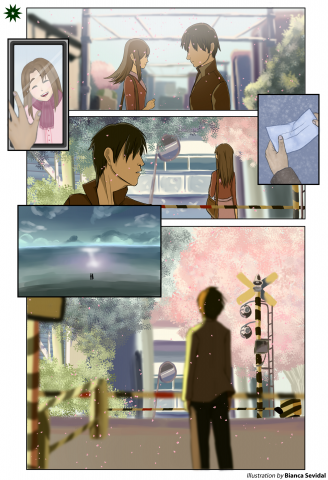
It’s just you and your significant other, without a care for anything else, and the rest of the world simply falls away. In that moment, you are invincible. This is the childhood memory recounted in the final minutes of Makoto Shinkai’s masterpiece, 5 Centimeters per Second.
Like his other renowned works, the film depicts the trials and tribulations love faces through two childhood friends pulled apart by circumstance. Desperate to keep their promise of seeing each other again, they grapple with the ever-growing physical and emotional distance between one another.
5 Centimeters is unflinchingly honest in its admission that our affections, no matter how deep-rooted and unwavering, don’t always end in happy-ever-after. It effectively dismantles our youthful naiveté; that despite never forgetting each other, despite the incomparable connection, love apparently does not conquer all. Ultimately, we are faced with the plain, unmasked reality that we mostly refuse to acknowledge—that people can and often do simply grow apart.
To come to terms with this is what Shinkai’s work leaves us to do. 5 Centimeters is a must-watch for those ready and willing to face the bleak truth of romance.
Bituing Walang Ningning (1985), Magz
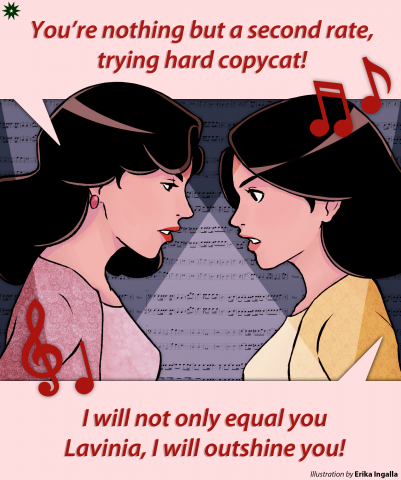
Emmanuel Borlaza’s camp classic Bituing Walang Ningning tells the story of avid fan Dorina (Sharon Cuneta) and her idol, Lavinia (Cherie Gil). Transforming from sampaguita vendor to overnight star, Dorina finds herself battling with Lavinia as the musical film turns from obsession to competition as both try to reach for the stars.
Though romantic involvement—like with any Filipino film in the 80s—is present, the movie emphasizes Dorina’s determination to bask in the limelight. It is this love for singing that gets Dorina closer to her dream, aside from using Lavinia as her main source of musical inspiration. Ultimately, she has a difficult decision to make—trading in her fame for a new kind of love. In the end, the two come to terms with what they truly want, the celebration of life, song, and love.
Portrait of a Lady on Fire (2019), Glenielle
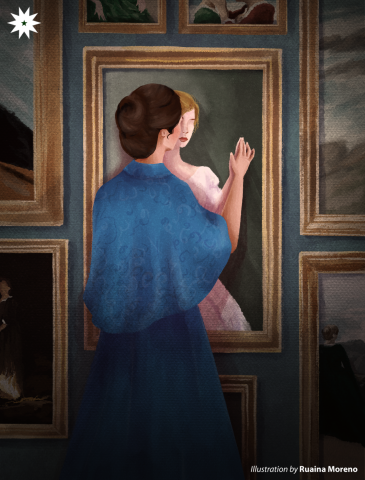
The film asks, “What does it mean to see and be seen?” and gives such a beautiful answer in its examination of how art, music, and mythology immortalizes the fleeting.
Writer and director Céline Sciamma subtly flips the age-old tale of creator and muse through Marianne (Noémie Merlant) who comes to a remote French island to paint Héloïse’s (Adèle Haenel) portrait to be sent to her betrothed. What starts as a painting for the male gaze becomes sapphic liberation as the two women fall helplessly in love.
The film’s magic lies in the secret language shared between two people. “Do all lovers feel as though they’re inventing something?” Héloïse asks Marianne with her eyes closed, committing every detail of her to memory. And when years later, Marianne sees a seemingly-innocuous portrait of Héloïse holding a book opened to a page with significance to both of them, we instantly understand the ecstasy of longing, the joy of being known, and how time surrenders to the ache of remembering.
Bata, Bata…Pa’no Ka Ginawa? (1998), Alexandra
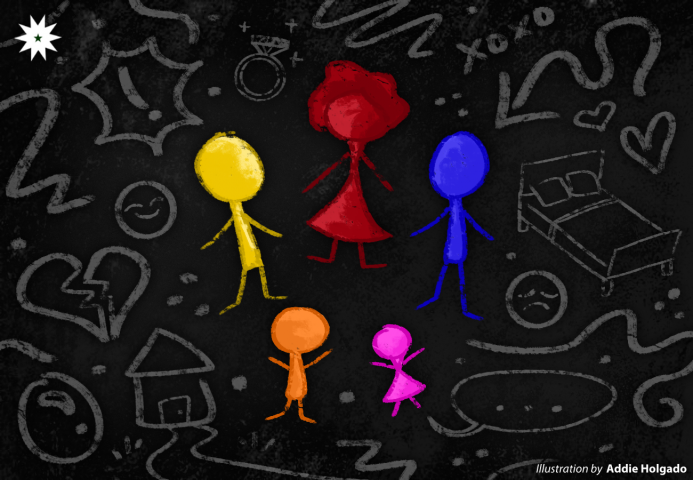
Radicalizing the role of a woman in the late 90s, Chito S. Roño’s adaptation of Lualhati Bautista’s feminist novel challenges our conventional understanding of motherhood. Vilma Santos’ iconic portrayal of headstrong single mother Lea who embraces her sexuality and defies patriarchal norms gave us more than just the famous line, “Akala mo lang wala! Pero meron! Meron! Meron!”, it deftly steers us away from the dichotomy that confines mothers to fully dedicate themselves to their children and husbands.
(You think you did nothing wrong, but you did! You did! You did!)
The film paints Lea to be vulnerable, complex, and flawed as she navigates societal pressures and self-discovery in motherhood, love, and her career. In breaking away from the perfection demanded from mothers and women, Bata, Bata…Pa’no Ka Ginawa presents us with a new idea—a woman defined on her own terms.
Eighth Grade (2018), Bea

More often than not, love is identified through the connections we make with others. People find themselves entangled in the desire to be seen and valued—often to their own detriment.
Eighth Grade is A24’s endearing depiction of the painfully awkward road to self-love and acceptance. Thirteen-year-old Kayla Day (Elsie Fisher) deals with pool parties, sex, and her yearning to be more than her middle school’s “Most Quiet” awardee. Finding herself in gawky misadventures that provide wisdom for her self-help Youtube channel, she comes to the realization that the only change she needed was a change in perspective.
In all its teenage angst glory, Eighth Grade is a gentle reminder that love from other people shouldn’t make life whole, just a whole lot better.
Mamu; And a Mother too (2018), Andrei
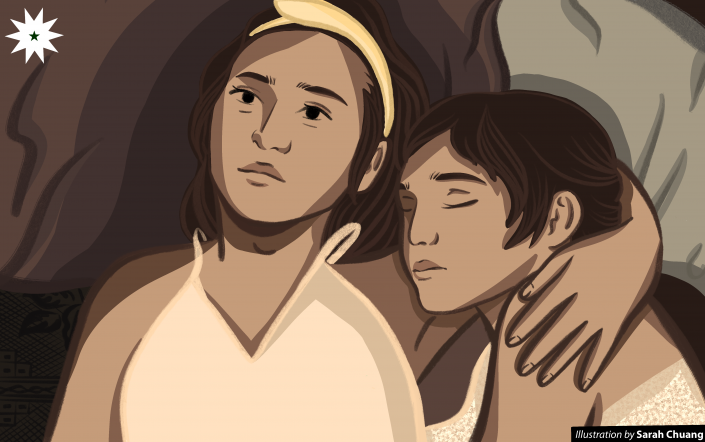
Most queer narratives have mainly focused on the leads’ romantic escapades, with all too familiar cheesy moments and witty one-liners. But Rod Singh’s Mamu; And a Mother too aggressively chooses to subvert these tropes in favor of depicting the profound love and care found within the LGBTQ+ Community.
The story follows Mamu (Iyah Mina), an aging trans woman; Bona (EJ Jallorina), a trans woman coming into her own; and Mamu’s partner, Vincent (Arron Villaflor), as they find solace and empowerment in their found family. The film brilliantly taps into the universal desire for connection and liberation—showing that the best people are those we can be our truest and most vulnerable with. In the end, the ability to strip oneself of the urge to give into conformity and prejudice is a safe space that transcends all aspects of love.
Love, ultimately, is a celebration of all kinds of profound connections—romantic or otherwise. It is an impetus to be free, write our own narratives, and look at the world differently. Wherever your journey brings you, may it be a romcom or a thriller or an indie coming-of-age film, may love, at its purest, always inspire you to be your best self.
